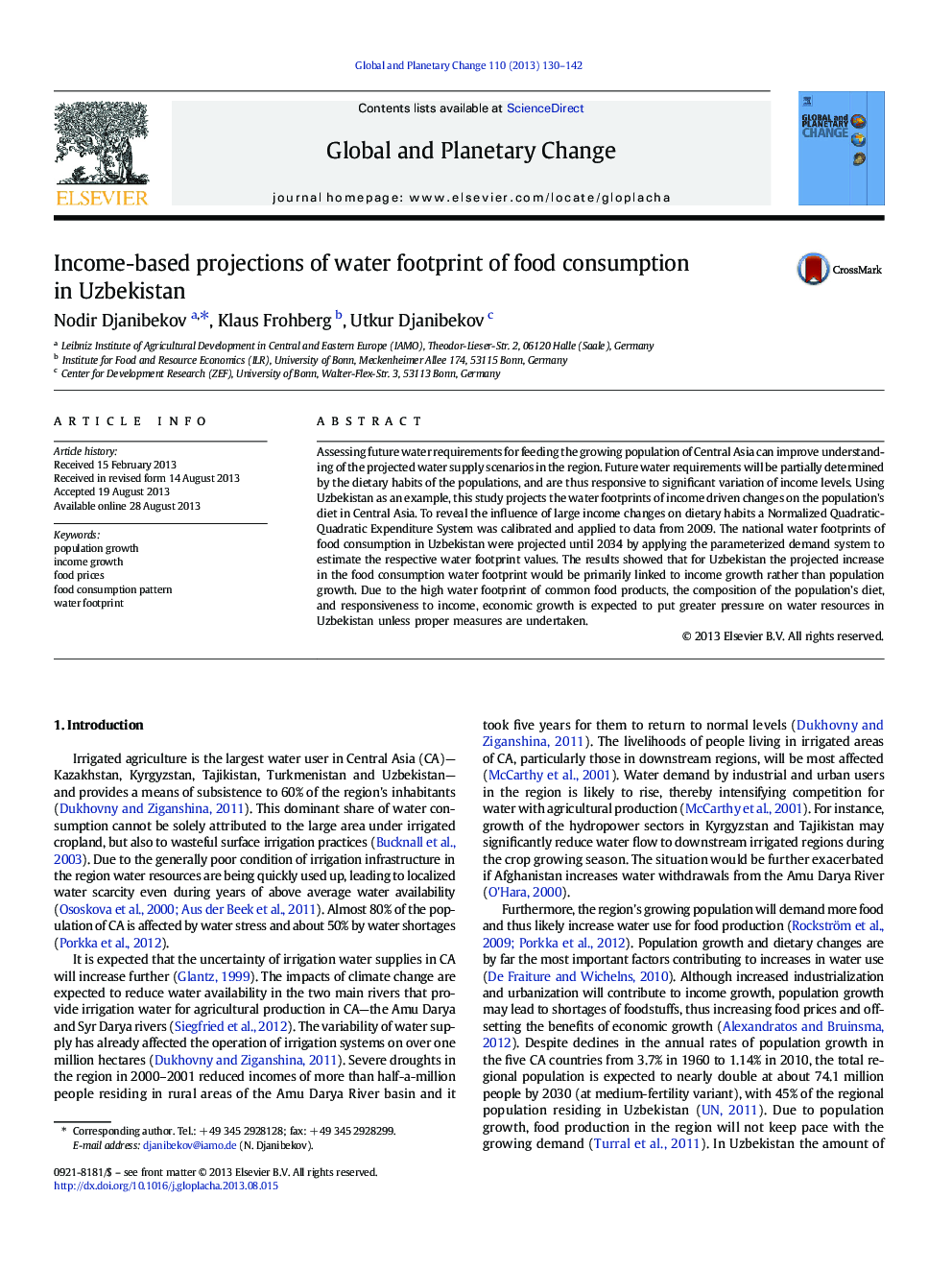| Article ID | Journal | Published Year | Pages | File Type |
|---|---|---|---|---|
| 4463545 | Global and Planetary Change | 2013 | 13 Pages |
•We project impacts of changes in population diets on water requirements for food.•Virtual water requirements for food were evaluated via income and population growths.•Income-driven changes in food diets put higher pressure on water demand.•Diet composition and its responsiveness to income growth would add to water problem.
Assessing future water requirements for feeding the growing population of Central Asia can improve understanding of the projected water supply scenarios in the region. Future water requirements will be partially determined by the dietary habits of the populations, and are thus responsive to significant variation of income levels. Using Uzbekistan as an example, this study projects the water footprints of income driven changes on the population's diet in Central Asia. To reveal the influence of large income changes on dietary habits a Normalized Quadratic-Quadratic Expenditure System was calibrated and applied to data from 2009. The national water footprints of food consumption in Uzbekistan were projected until 2034 by applying the parameterized demand system to estimate the respective water footprint values. The results showed that for Uzbekistan the projected increase in the food consumption water footprint would be primarily linked to income growth rather than population growth. Due to the high water footprint of common food products, the composition of the population’s diet, and responsiveness to income, economic growth is expected to put greater pressure on water resources in Uzbekistan unless proper measures are undertaken.
